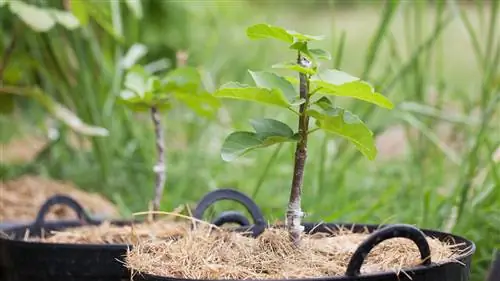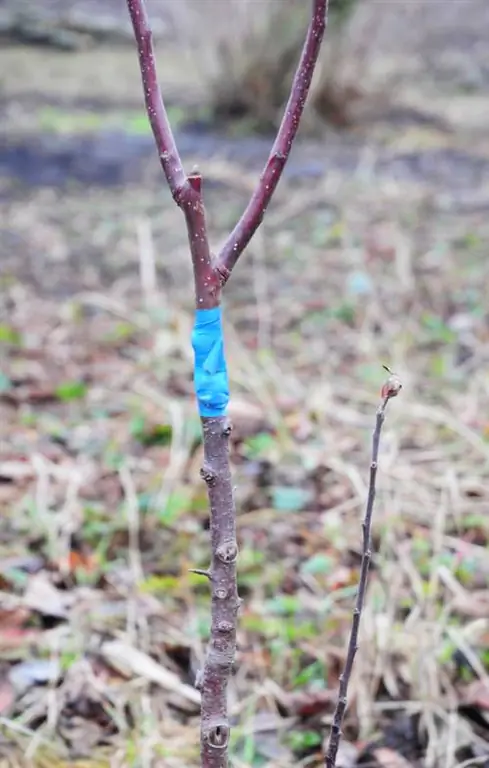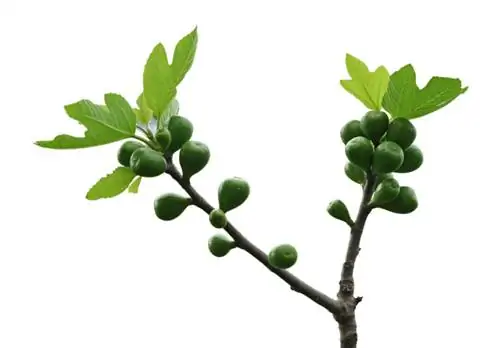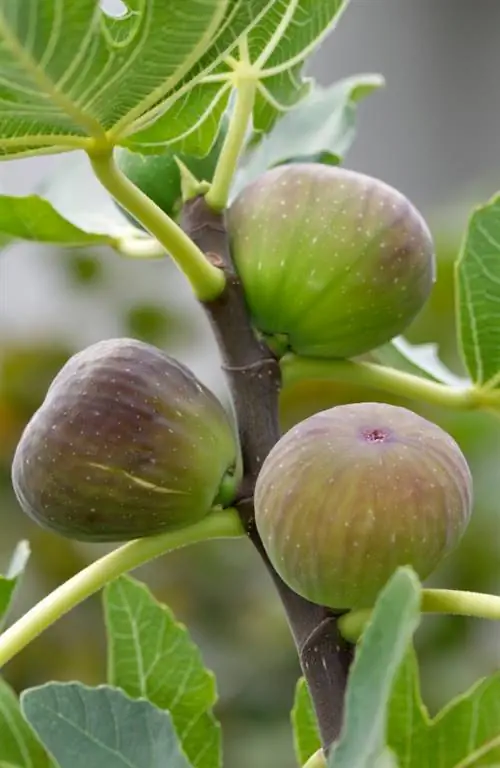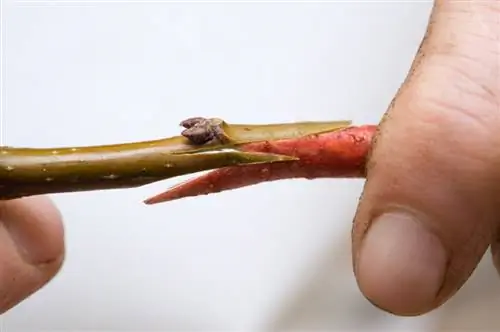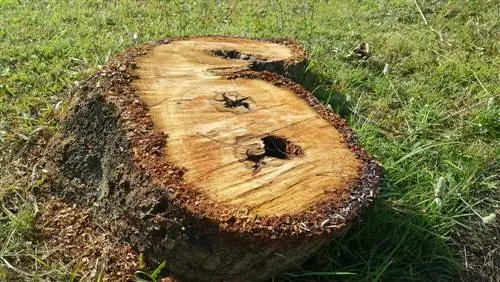- Author admin [email protected].
- Public 2023-12-16 16:46.
- Last modified 2025-01-23 11:22.
Did you know that you can graft a fig tree? Two practical grafting techniques turn a wild Ficus carica into a high-yielding noble variety. Read the best tips about fig tree refinement in the hobby garden here.
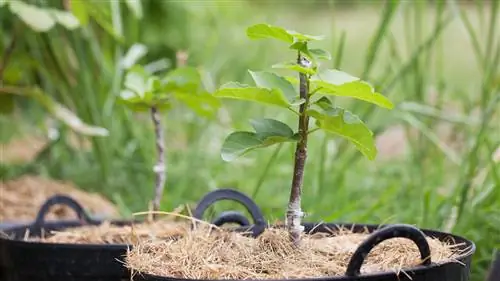
How is a fig tree grafted?
Copulationin March andOculation in July/August are suitable for fig tree grafting. During copulation, you connect a robust base and a scion precisely. When seeding a fig tree, push the dormant bud of a noble fig variety under the cut bark of the rootstock.
Why is a fig tree grafted?
The grafting of fig trees is traditionally used forvegetative propagation In the hobby garden, a fig tree is grafted when a wild fig species does not bear fruit. Furthermore, fig tree grafting is valued as a simple method of harvesting two types of figs from one fruit tree.
Which methods are suitable for grafting a fig tree?
To refine a fig tree,CopulationandOculation are suitable. Both methods have proven themselves well in commercial and private fruit tree grafting for generations. Read the short version of the respective finishing technology here:
- Copulation: Two cut surfaces of the rootstock and scion are joined together precisely.
- Oculation: The dormant bud of a noble variety is pushed under the cut bark of a hardy base.
When can you graft a fig tree?
The best time for grafting a fig tree using copulation is inMarch, before the leaves emerge. To seed a fig tree, the ideal time window is fromJuly to August.
Tip
Fig tree grafting has its pitfalls
The limited winter hardiness of fig trees makes grafting a horticultural balancing act. In a harsh winter, fig trees planted in Germany freeze back to the ground and sprout again from their rootstock in spring. For a grafted fig tree, this means that the noble variety is lost and only the rootstock survives the frost damage.

